
- Member Since 12th Dec, 2011
- offline last seen 51 minutes ago
Jest
Want more? Head on over to patreon, or subscribestar. Or join my discord https://discord.gg/m2wZEKpcwu
Jest
Joined 12th Dec, 2011 ·
Offline
Also LikedSimilarAuthor
- the7Saviors · 67k words · 322 9 · 3.6k viewsSometimes life doesn't work out how you want. Sometimes there's joy, sometimes there's suffering, often times life can be as cruel as it is kind, but you have to take the bad with the good. That's life, and Twilight Sparkle has no choice but to live.
- Crowborn · 41k words · 60 4 · 887 viewsShiera An died. The love of her life and the woman she considered her closest friend both betrayed her. The heartbreak was too much, and not a few months later, the recently crowned empress was finally slain in battle. But heaven did not await her...
- Shaded Blood · 137k words · 587 33 · 7.6k viewsSuccumbing to a dark power that threatens to consume her, Twilight must save her friends and Canterlot from the invading Changeling forces. How far would you go for Revenge?
- White Dragon Emporror · 21k words · 95 10 · 2.8k viewsA Young man is found outside the Everfree Forest with severe wounds and a secret.
- hydra30 · 110k words · 1,241 69 · 19k viewsWhat if Celestia was not the first person to offer Twilight tutelage
- Skijarama · 36k words · 161 10 · 3.7k viewsShe is known as no more than a myth, a legend, a bedtime story to scare little foals. Her name is Moonrise Drifter, and Twilight Sparkle is going to learn more about her than anypony has in a long time...
- Delta-Boio · 61k words · 239 24 · 4.7k viewsThe sole survivor of a unintentional mass genocide gets thrown into a new world with all the powers and abilities he's ever wanted and more. However, this new world is in dire need of a hero. This is the story of how Logan Boil saves an entire planet
- Jest · 2.1k words · 942 25 · 11k viewsChrysalis' invasion lasts only a whopping five seconds before she surrendered. All according to plan.
- Jest · 87k words · 1,217 40 · 10k viewsA disabled man bests a stranger in a game and is transported to another world. Though he probably should have considered his stats a little more as he ended up as a tree. One with necromantic powers, but a tree nonetheless.
- Jest · 4.8k words · 684 22 · 6.9k viewsThe five-second war is over, as have four weeks of careful deliberation and discussion. All that is left is for Equestria's elected officials to weigh in on their changeling problem. That shouldn't be hard, right?
- Jest · 688k words · 2,385 106 · 28k viewsA prodigal child is born once more with a strange condition that makes her uniquely gifted in a lost magical art. Unfortunately for the child, that art is soul magic and Celestia does not tolerate the manipulation of a soul under any circumstances.
- Jest · 72k words · 1,013 43 · 9.2k viewsA group of refugees make a desperate plea for a savior and accidentaly summon forth a recently deceased human. Who upon reaching Equestria, possesses not a pony, but a mountain.
- Jest · 4.4k words · 135 2 · 816 viewsSometimes it's not easy to understand the ones you love, and it can be even harder to help them. Celestia knows this all too well.
- Jest · 2k words · 589 28 · 8k viewsIts been centuries since Twilight's friends passed and since then the alicorn has taken many students. The latest one of which is about to get to the bottom of a two hundred-year-old lie.
- Jest · 164k words · 762 39 · 12k viewsTwilight awakens to find that she is no longer an alicorn, nor a pony for that matter. Rather she has become the fearsome queen of the wasteland.
Featured In63
- Celestia & Luna4,436 stories ·2,702 members
- Alternate History Bronies629 stories ·732 members
The Writers' Group56,394 stories ·9,291 members
Dark8,311 stories ·3,763 members
- GrimDark2,447 stories ·2,181 members
- Author Support4,371 stories ·2,069 members
- author help (a group made to help new and old authors with fic's)1,792 stories ·682 members
Twilight is Best Pony6,371 stories ·3,071 members
Stats
Page generated in 0.104 seconds
Total duration
975 users online
72,215 hits today, 2,244,100 yesterday
FIMFiction
My Little Pony: Friendship is Magic Fanfiction
Designed and coded by knighty & Xaquseg - © 2011-2024
Follow & Support Us
![]() Support us
Support us
SubStar
Chat!
Discord
Follow us
Twitter
MLP: Friendship is Magic® - © 2024 Hasbro Inc.®
Fimfiction is in no way affiliated with or endorsed by Hasbro Inc.®


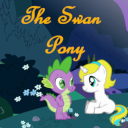
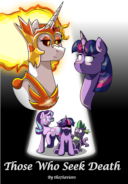
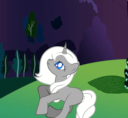


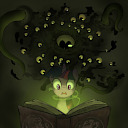
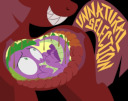
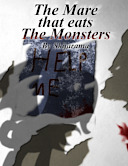
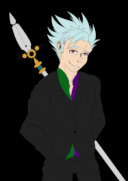




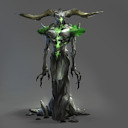

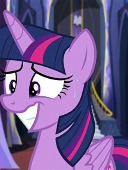

I think the most interesting part of the story is the line "True free will is after all, not possible." Did Celestia mean that in a solely golemantic context, or is everyone else as restricted in their actions as Twilight? In any case, I think incident #10 might turn out differently if Celestia eases Twilight into accepting the personhood of self-aware magic golems on a hypothetical level to begin with. Twilight'a certainly inclined to accept the idea. What could she like more than the idea of literally making new friends with magic?
In any case, a fascinating little psychological horror show. Thank you for it.
This was great!
As benevolent as Celestia seems, this really doesn't seem too terribly hard to believe. Also, how many of those seven times before did she actually make the same decision?
Hmm... I actually would ask about consciousness. Is it meta-physical or is it just some mind state? If it is just a mind state then we are all just machines with our own programing.
Good story otherwise .
.
9241077
...not unlike the Matrix.
Going by recent events and how he was portrayed, I wonder where on earth Spike was during all of this? He's practically an element of harmony by now and it honestly feels strange to not see him with the rest of the mane six when they are on these type of adventures.
9242502
Twilight doesnt sound like the type of pony to bring her kid brother to fight a necromancer.
This played out completely differently to how I thought it would after Chapter 1. Consider me impressed. Were you reading some Asimov before writing this?
9242660
No, though I have read him in the past.
I like the slightly different approach to Twilight being a golem. Usually, stories that have twilight as a golem have her posses complete free will. I like the idea that her free will is limited. That being said I do still want to see a sequel where Twilight is able to gain complete free will, that would be an interesting story arc to follow.
Protocol six six seven really??!?
That was an interesting story.
The summary was kinda misleading though.
9983492
Thats the point.
Neat. For the record I subscribe to Twilight’s definition of free will as it allows for causality.
I'm actually not sure what the reference is here.
Oh my. That's one way to have a group activity in the Sparkle Census.
Oh. I see. You do put Twilight through a lot, don't you?
Completely trustworthy, unbiased source there, folks.
As for that ending... yeah, that definitely seem like a definition issue. Got to pin down the terms before you can have a meaningful discussion.
Except she's not a counterbalance or a third voice, because if you want it enough you'll make her do what you say without her even really being able to disagree
If you want to get technical, depending on how you define free will, it doesn't exist. Not even Celestia would have it. But that's libertarian free will. And libertarian free will is what's described when Celestia mentions being random. It's impossible for a choice to be random. After all, you can choose an option that you don't know exists. There are finite parameters. For example, if you roll a 6-sided die, what are the chances that you'll roll a 27? There is no chance unless you specifically label one of the sides with a 27. If you roll a 6-sided die, you will know for sure that you will either get a 1, 2, 3, 4, 5, or 6. And what side it lands on isn't random because there are several factors that can allow for you to calculate what side the die will land on. First is what side is up when you throw it, then there's the distance from your hand to the table, how fast the die is spinning, how much force you put into the throw, the material it lands on, the material the die is made of, then there are factors like altitude, air pressure, humidity, wind, etc.
Not even chaos is absolutely unpredictable because there is one thing that can be predicted, which is where the idea of "expect the unexpected" comes into play.
In Twilight's case, it's a little more unique. For example, the self-harm thing, if Celestia found a way to lessen that up a bit so that it's more like an impulse than programming, then it would be similar to the instinct that most life forms have of self-preservation. There are certainly other details, like those activation codes and protocols. Remove them, or at least only allow them to be activated when absolutely necessary.
As for her choosing to forget what she is, did she actually make that choice, or does her programming make it impossible to make any other choice? This would've been the 8th time she made the same 'choice', but she can't know how her life would continue if she had that knowledge. Celestia has probably gone through the same song and dance 8 times now. What Celestia did was dampen her emotions so that Twilight could think rationally about that decision. But by doing so, you're functionally turning her into a machine. Perhaps that's the problem with the other 7 times too. Perhaps Celestia, rather than let Twilight think rationally, let her think emotionally. She can't base her decision on how she feels if she can't feel.
I acknowledge both definitions as being valid definitions of free will. Libertarian free will is a myth. Twilight's definition is functionally what people often refer to when they say "free will".